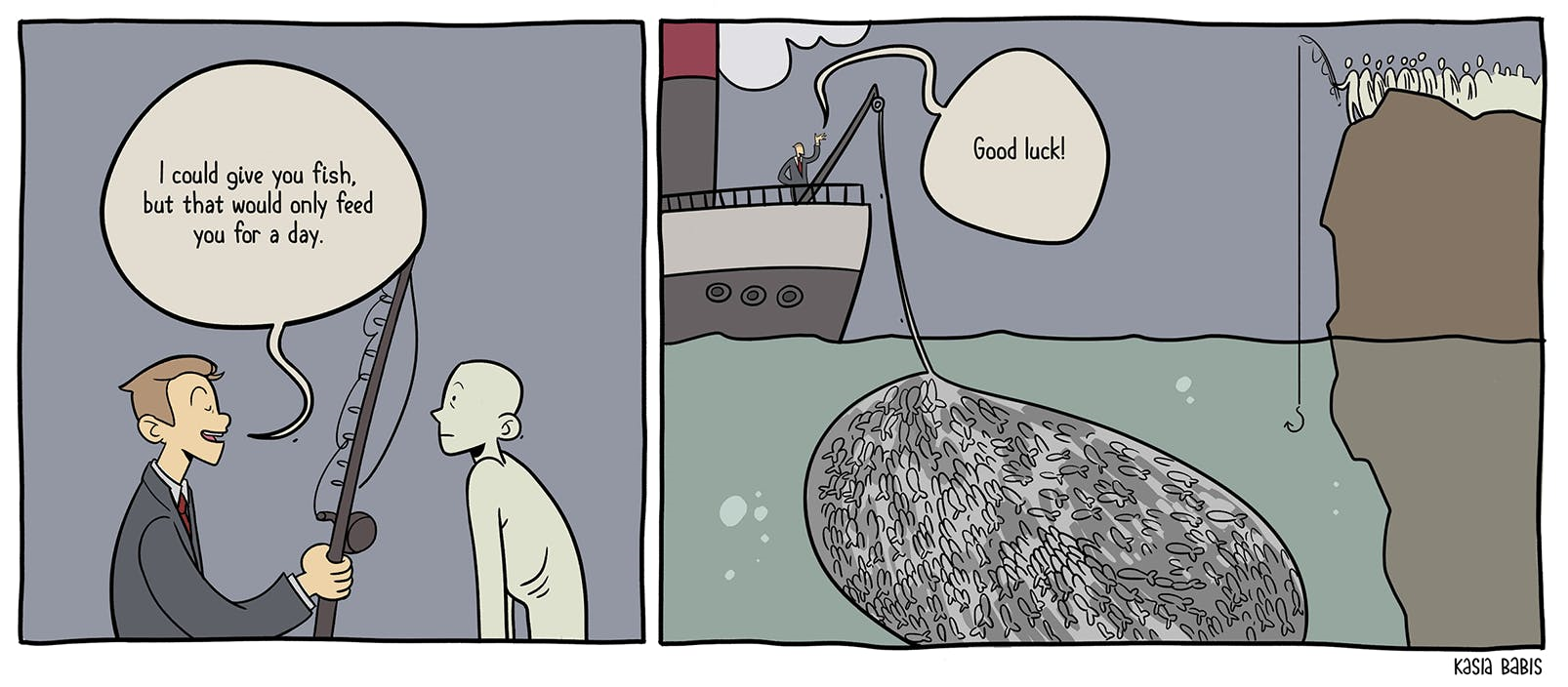
We just launched Dynamics of Helping the Poor For Individuals and For Groups.
In this course, the Rev. Lee Anne Reat, Canon for Formation and Social Justice Ministries for the Diocese of Southern Ohio, examines acts of mercy in relation to acts of justice. She offers suggestions for healthy ways in which congregations can engage their communities in partnerships for long-term change.
Lee Anne’s arguments in this course may be examined by picking apart the old saying “Give a man a fish and he eats for a day; teach a man to fish and he eats for a lifetime.” *
Lee Anne basically argues that if someone is starving, giving that person a fish is a good idea, but that a system based in rich people getting access to fish and doling it out as they choose to people who constantly have to ask for it sets up unhealthy systems for everyone involved. It’s a good thing to keep people from starving. It’s not a good thing to keep people on the brink of starving because we tolerate the kind of injustice that keeps some people on top at the expense of others. Excessive reliance on fish distribution — or even, as in the cartoon above, fishing pole distribution — at the expense of changing systems that make it impossible for people to make money fishing for themselves can perpetuate the kind of injustice that in the long term leads to community stagnation or decline.
Instead, Lee Anne suggests that we look for ways to circumvent or eliminate hurdles that keep people from fishing for themselves. She goes on to discuss ways in which people can work to change their communities in productive, respectful, and genuine ways — building relationships with people who need help and listening to them talk about what they need rather than telling them what they should do.
This course is ideal for congregations or individuals who would like to work to change their communities and help poor people gain economic power within those communities. Click here for a course preview.
*Fun fact about the “give a man a fish” saying: it is often attributed to ancient Chinese, Indian, and/or Native American writers but probably was coined by Anne Isabella Thackerey Ritchie in the nineteenth century.
